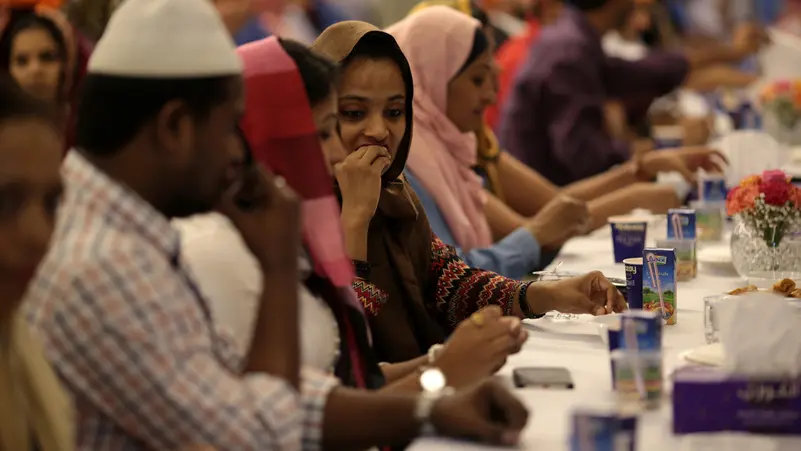As the holy month of Ramadan is set to begin on Thursday, doctors in the United Arab Emirates have advised Muslim teenagers on how to manage stress levels while fasting and undergoing school exams.
Ramadan is observed by more than 1.8 billion Muslims worldwide – with many of them being teenagers and young adults.
This year, the holy month falls during a critical period in the school year where teenagers in the UAE are stepping up academic studies ahead of exams. Experts are warning this can pile extra pressure on youngsters as they fast from dawn until sunset as an act of devotion and spiritual reflection.
Practice self-care
Dr Reena Thomas, a clinical psychologist at Medeor Hospital, Dubai, told Al Arabiya English that the easiest route is enabling better self-care through managing sudden changes in eating and sleeping habits by hydrating well, eating sensibly, getting adequate rest and exercising.
“Young adults must get adequate sleep and rest,” she stressed, adding: “Low-intensity exercise (brisk walking, home-based workouts, yoga, swimming, etc.) can help reduce stress by releasing endorphins, naturally making you feel good.”
She suggested taking enough breaks and engaging in activities “that soothe all your senses as and when needed.”
These include “visualization or imagery exercises, mindfulness meditation, massaging your skin, making art, taking a bath, playing with a pet, etc.”
Practice ‘gratitude journaling’
Practicing ‘gratitude journaling’ – the habit of recording and reflecting on things (typically three) that you are grateful for on a regular basis – will help young adults to be more constructive in life and more optimistic, according to Dr Thomas.
“Also, decluttering their mind and taking one day at a time by adding structure to their routine will help them reduce their stress level and increase focus,” she said. “Teenagers should be more realistic in their expectations and appropriate limit-setting will help reduce their self-imposed burden and give them more clarity.”
The doctor also said teenagers should take advantage of the “spiritual strength” during the month which gives them an opportunity “to disengage from addictive behaviors and excessive stimulants, which can also help improve focus.”
Dr Thomas said teenagers should consult experts if they are on medication and know the potential impact on their mental health with sudden disruptions in sleep cycles, including nocturnal sleep reduction and broken sleep patterns, and changes in energy levels.
“There is a possibility of exacerbation of mood disorders, eating disorders and body image disturbances,” she said. “Religious exemptions from fasting are acceptable for people lacking the mental strength due to either having a recent acute episode or suffering from chronic mental health disorders. However, there is a likelihood of feelings of guilt and exclusion affecting their experience, leading to isolation, and worsening mental health.”
This needs to be carefully addressed by their friends and family, she said.
“Nevertheless, socialization is a necessity as the brain is wired for inter-connectedness. The holy month provides an opportunity for richer social experiences with collective activities, and it helps heal and preserve mental health,” the doctor added.
Read more: Alarabiya

